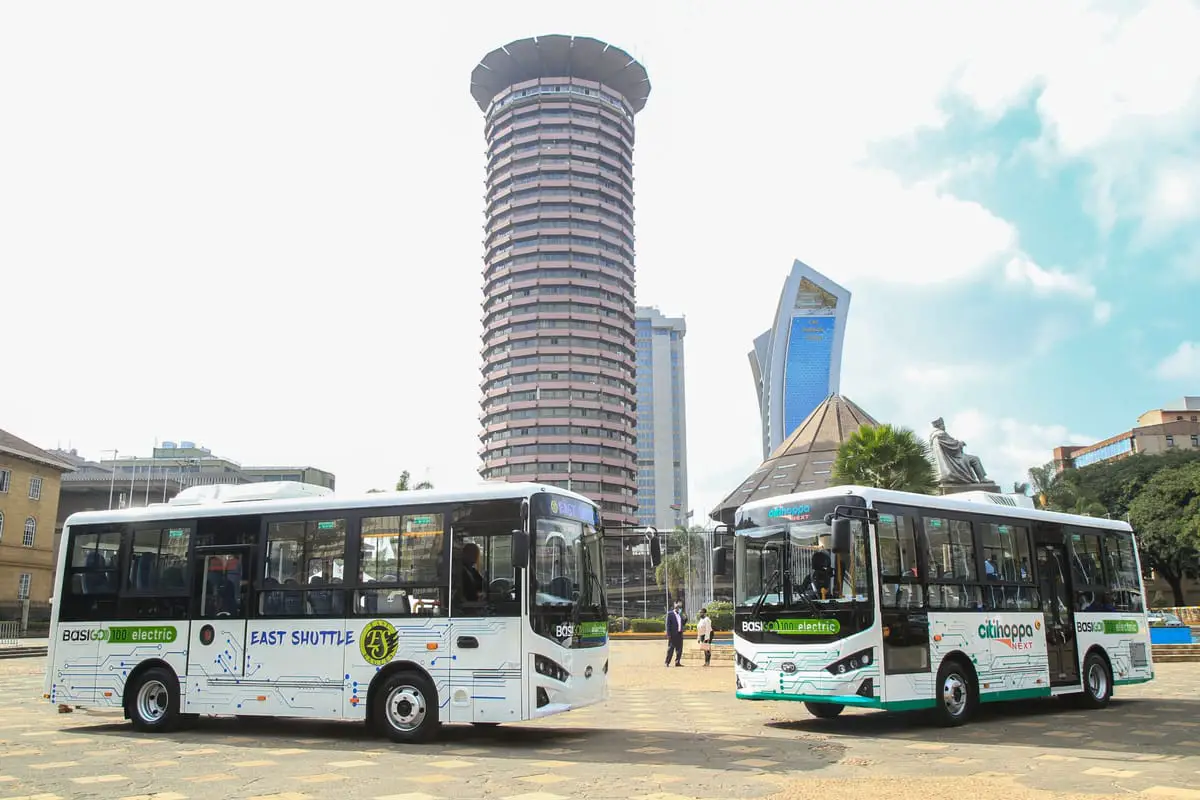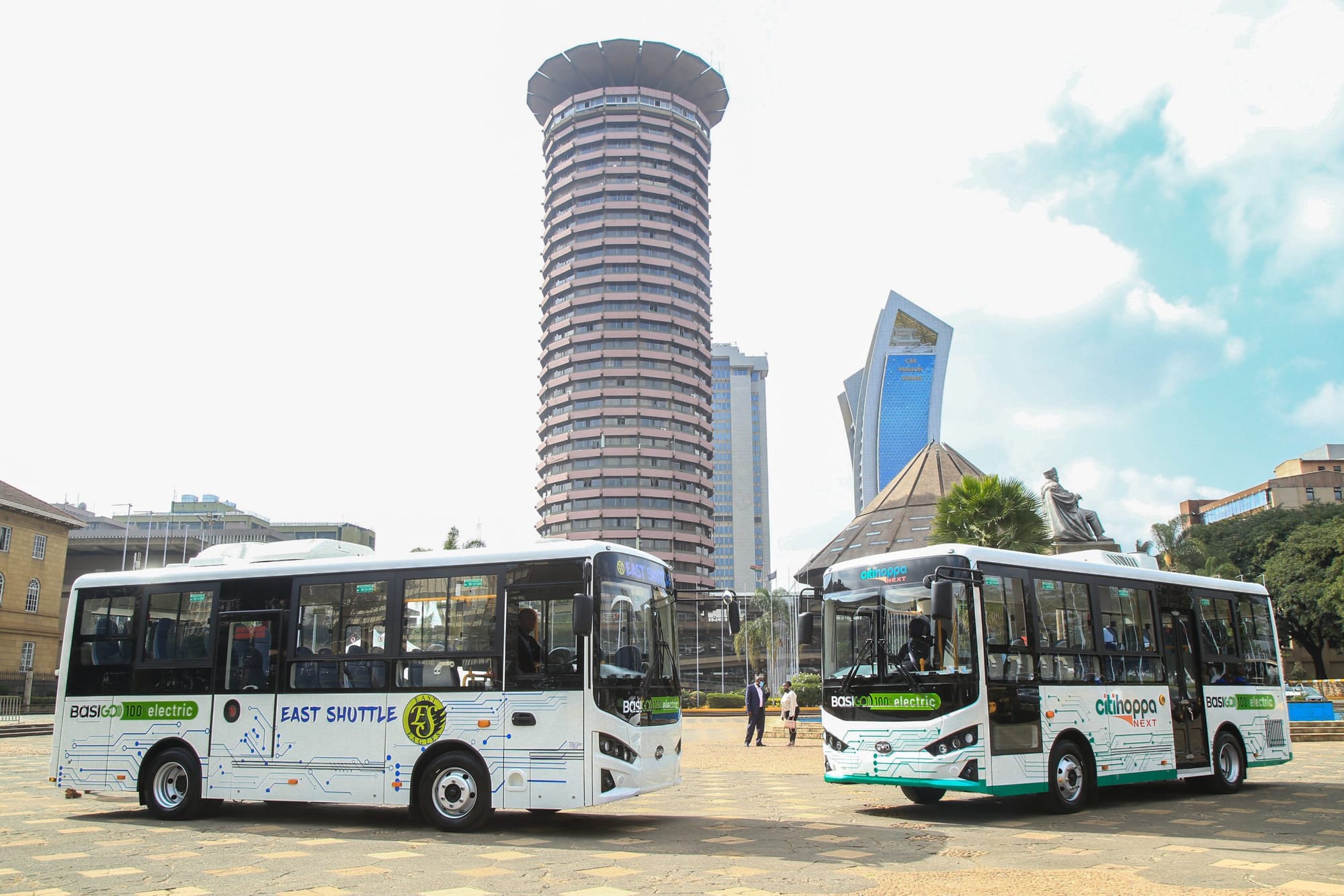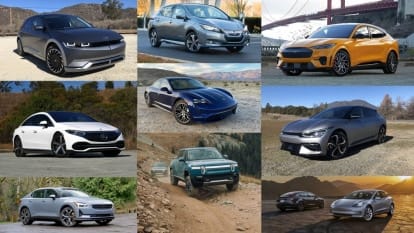Kenya Power E-Mobility Forum: Pioneering Sustainable Transportation in Africa.
In Kenya, a country grappling with the dual challenges of rapid urbanization and environmental degradation, the global trend toward sustainable transportation is gaining traction.


In Kenya, a country grappling with the dual challenges of rapid urbanization and environmental degradation, the global trend toward sustainable transportation is gaining traction.
The nation has increasingly recognized the urgent need to address climate change and reduce carbon emissions, particularly in the transport sector, which accounts for a significant portion of Kenya's greenhouse gas emissions.
In response to this pressing concern, Kenya has begun to embrace electric mobility as a viable solution to mitigate the environmental impact of transportation.
Read: Kenya Power to accelerate electric transport transition.
With a growing population and expanding urban centers, the demand for clean and efficient modes of transportation has never been greater.
Electric mobility presents an opportunity for Kenya to transition away from fossil fuel-dependent vehicles towards environmentally friendly alternatives.

In recent years, there has been a noticeable increase in the adoption of electric vehicles (EVs) in Kenya, driven by both government initiatives and private sector investments.
The Kenyan government has introduced policies and incentives to promote the uptake of EVs, including tax breaks, import duty exemptions, and investment incentives for manufacturers and distributors of electric vehicles and charging infrastructure.
See: Where does Kenya's electricity to recharge EVs come from?
Furthermore, Kenya's commitment to renewable energy development aligns with the goals of electrifying transportation.
With its abundant renewable resources, such as solar and geothermal energy, Kenya has the potential to power electric vehicles with clean energy, further reducing the carbon footprint of transportation.
The shift towards electric mobility in Kenya is not only driven by environmental considerations but also by economic and social factors.
EVs offer lower operating costs and reduced reliance on imported fossil fuels, contributing to energy security and economic resilience.
Additionally, the adoption of electric vehicles has the potential to create new job opportunities in the manufacturing, maintenance, and servicing of EVs and charging infrastructure.
As Kenya continues to prioritize sustainable development and environmental conservation, electric mobility emerges as a promising solution to address the challenges of climate change and air pollution while fostering economic growth and energy independence.
The recent shift towards sustainable transportation reflects Kenya's commitment to building a greener, more sustainable future for generations to come.
In Africa, where rapid urbanization and economic growth pose unique challenges, the adoption of electric vehicles (EVs) presents an opportunity to leapfrog traditional fossil fuel-dependent infrastructure and embrace a cleaner, more efficient future.

Recognizing this potential, Kenya Power, the leading electric utility company in Kenya, hosted the groundbreaking Kenya Power E-Mobility Forum, marking a pivotal moment in the continent's journey towards sustainable transportation.
The Kenya Power E-Mobility Forum, held in Nairobi, brought together key stakeholders from government agencies, private sector entities, academia, and international organizations to discuss and strategize the integration of electric mobility solutions into Kenya's transportation ecosystem.
The forum served as a platform for knowledge exchange, policy dialogue, and collaboration, aimed at accelerating the adoption of EVs and supporting the development of robust charging infrastructure across the country.
One of the central themes of the forum was the role of public-private partnerships in driving the E-Mobility agenda forward.
By fostering collaboration between government entities, utility companies, automotive manufacturers, and technology providers, Kenya Power aims to create an enabling environment for the widespread adoption of EVs.
Through strategic partnerships, stakeholders can leverage their expertise, resources, and networks to overcome barriers such as high upfront costs, limited infrastructure, and consumer awareness.
Moreover, the forum underscored the importance of policy and regulatory frameworks in incentivizing the transition to electric mobility.
Related: KenGen to start shipping electric cars in Kenya.
Participants highlighted the need for supportive policies that promote EV uptake, such as tax incentives, subsidies, and emissions regulations.
Additionally, regulatory frameworks governing electricity tariffs, grid integration, and standards for charging infrastructure play a critical role in ensuring the reliability, affordability, and interoperability of E-Mobility solutions.
One of the key outcomes of the Kenya Power E-Mobility Forum was the announcement of ambitious targets and initiatives aimed at advancing the electrification of transportation in Kenya.
These include plans to expand the network of EV charging stations, develop smart grid solutions to support increased electricity demand and incentivize the adoption of EVs through innovative financing mechanisms.

By setting clear goals and mobilizing resources, Kenya Power aims to position Kenya as a regional leader in E-Mobility and catalyze similar initiatives across the continent.
Furthermore, the forum showcased the technological innovations driving the evolution of electric mobility, including advancements in battery technology, charging infrastructure, and renewable energy integration.
Participants had the opportunity to explore cutting-edge solutions and learn from best practices implemented in other regions.
By embracing innovation and harnessing the power of technology, Kenya can overcome logistical challenges and unlock the full potential of E-Mobility to drive sustainable development.
In conclusion, the Kenya Power E-Mobility Forum represents a significant milestone in Africa's transition towards sustainable transportation.
By bringing together diverse stakeholders and fostering collaboration, Kenya Power is paving the way for the widespread adoption of electric vehicles and the development of a greener, more resilient transportation infrastructure.
As the continent confronts the urgent challenges of climate change and urbanization, embracing E-Mobility offers a pathway to a cleaner, more prosperous future for all.




